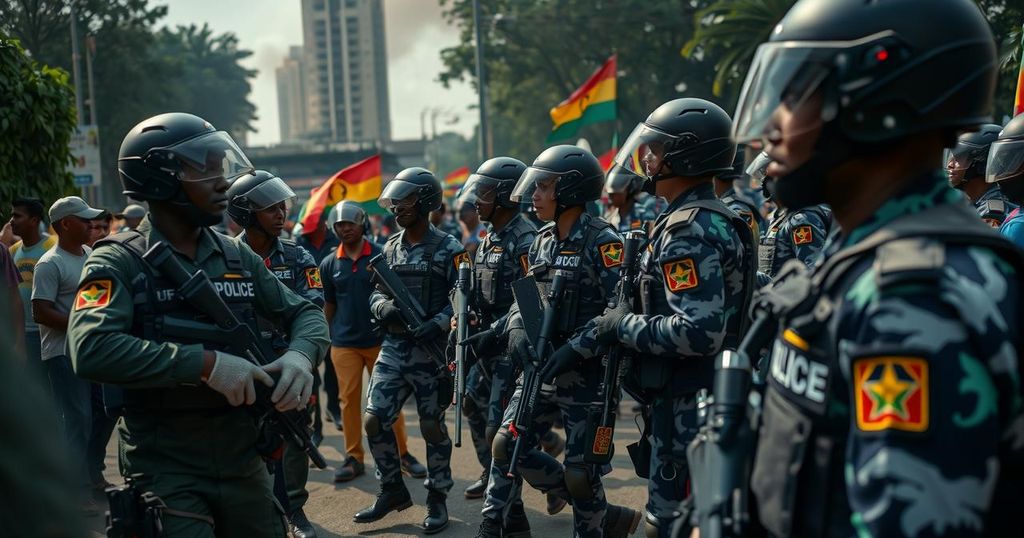World news
AFRICA, ANTONIO, ANTONIO JUAQIM, BBC, COMMISSION, DANIEL CHAPO, DEMOCRACY, ELECTIONS, FR, FRELIMO, MANUEL SAMUEL, MAPUTO, MON, MONDLANE, MOZAMBIQUE, OPPOSITION, PROTESTS, RENAMO, SAMUEL, SAO FRANCISCO XAVIER, SÃO FRANCISCO XAVIER CEMETERY, VE, VENÂNCIO MONDLANE, VIOLENCE
Fatima Khan
0 Comments
Mozambique Protest Tragedy: Police Violence and Electoral Discontent
Mozambique is currently experiencing unrest following the presidential election, with protests resulting in the deaths of several individuals, including minors. The demonstrations stem from allegations of election rigging by the ruling Frelimo party and have drawn attention to police violence against protesters. The protests signify a broader demand for change as younger generations seek improved living conditions in a country grappling with political and economic challenges.
The tragic aftermath of protests in Mozambique, sparked by disputed election results, has resulted in the loss of young lives, including that of a 16-year-old named Antonio Juaqim. Antonio was shot while participating in a pot-banging demonstration against the ruling Frelimo party’s claimed victory in the recent presidential election. His death, alongside others, has raised alarm over police violence amidst growing dissent against the government. Despite claims of electoral fairness by Frelimo, opposition voices allege widespread irregularities, leading to nightly protests and calls for justice from a frustrated populace, particularly the youth seeking better opportunities in an increasingly volatile political climate.
Since its independence nearly five decades ago, Mozambique has been governed by the Frelimo party, which recently faced allegations of election rigging amidst claims of increased public discontent. The electoral commission’s declaration of Frelimo’s candidate winning by 71% sparked immediate protests led by opposition leader Venâncio Mondlane, who previously distanced himself from the party. The subsequent protests, primarily involving young people, reflect a deeper societal frustration regarding economic prospects juxtaposed against the history of political struggle.
The current situation in Mozambique illustrates the serious implications of political disenchantment, particularly among the youth. The tragic loss of lives during protests highlights the urgent need for dialogue and accountability from the authorities. As calls for justice grow, the country stands at a pivotal moment that could either lead to a strengthening of democracy or further escalation of violence and repression.
Original Source: www.bbc.com




Post Comment